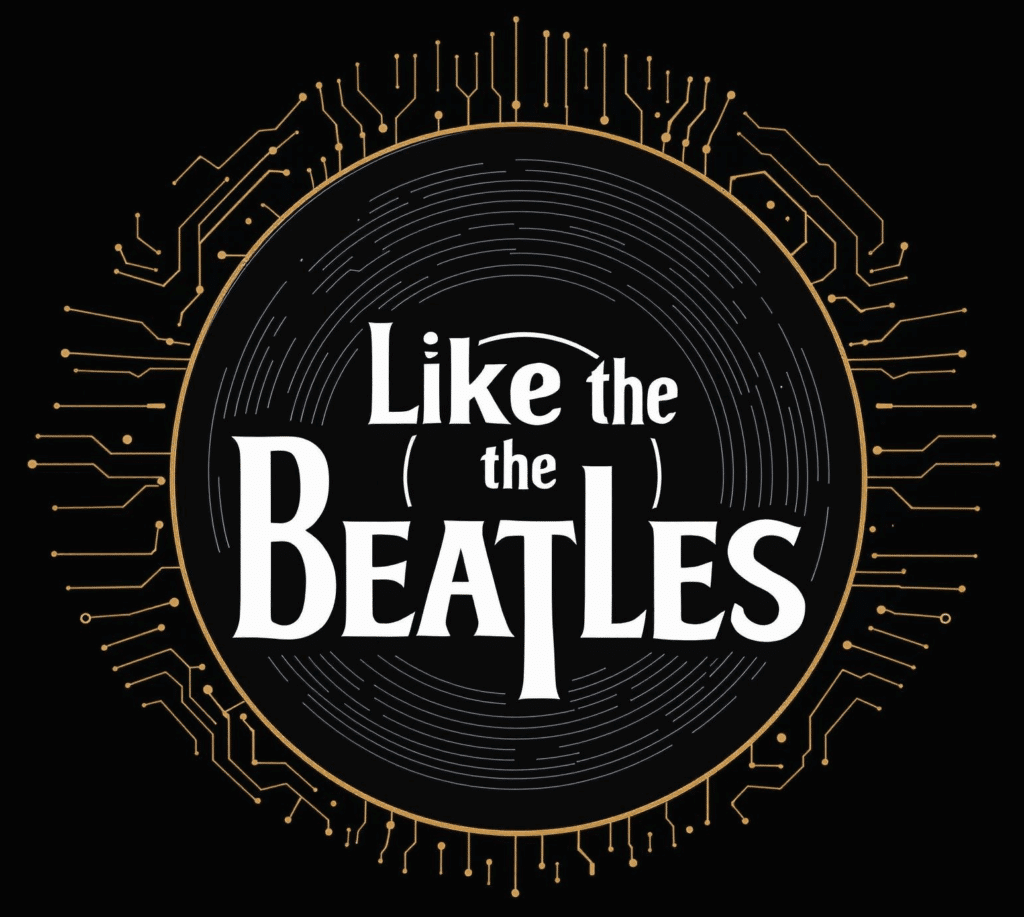It’s fascinating to explore how The Beatles transitioned from emerging artists to cultural icons, a journey marked by innovation and societal impact. I invite you to examine into their early days, featuring a blend of captivating melodies and experimental sounds that captivated audiences. As you follow their evolution, you’ll witness how they not only shaped music but also challenged social norms, becoming symbols of a generation. Join me as we uncover the pivotal moments that defined their legacy, allowing you to grasp the depth of their influence on our world today.
Early Beginnings
The Beatles’ journey began in the bustling city of Liverpool during the early 1960s, where a vibrant music scene provided fertile ground for creativity. The group, composed of John Lennon, Paul McCartney, George Harrison, and later Ringo Starr, came together in an era that was ripe for change, not just musically but culturally as well. Amidst this backdrop, they began to carve out their niche, setting the stage for what would become an iconic legacy.
Formation of the Band
Early on, the individual talents of Lennon and McCartney united when they started sharing songwriting duties, which ultimately turned into a powerful collaboration. As they added Harrison and Starr, their sound evolved, blending various influences from rock, pop, and rhythm and blues. It was this unique combination that would soon draw attention and set them apart.
Initial Releases and Recognition
An important milestone for The Beatles came with their first singles and albums, which began to chart and gain traction. Their debut single, “Love Me Do,” captured the ears of the public, leading to significant airplay on radio stations. It marked the beginning of a meteoric rise as fans eagerly embraced their catchy melodies and harmonious vocals.
To capitalize on their growing popularity, The Beatles released more singles like “Please Please Me” and “From Me to You,” which quickly climbed the charts. Their energetic performances, likable personalities, and distinctive Beatles sound resonated with young audiences across the UK. As they gained airtime, the buzz around them grew, culminating in a historic appearance on The Ed Sullivan Show in 1964. This moment catapulted them to international fame, as millions tuned in, excited to see the band that would soon dominate the music landscape. It was during this formative period that The Beatles began their unassailable journey towards becoming cultural icons.
Breakthrough Success
Even as they struggled in their early years, The Beatles achieved breakthrough success with their first album, establishing themselves as a new force in the music world. Their innovative sound, catchy melodies, and unique style captured the hearts of many, paving the way for their rise to fame. This marked the beginning of a transformative journey that would not only elevate them as artists but also transform popular culture in profound ways.
The Impact of “Please Please Me”
With the release of “Please Please Me,” The Beatles ignited a cultural revolution. The album’s blend of rock, pop, and heartfelt ballads showcased their extraordinary talent and set a new standard for music in the 1960s. Its commercial success in the UK marked a significant milestone, helping them build an influential fanbase that would only grow from there.
The Rise of Beatlemania
Please note that as The Beatles became more popular, Beatlemania erupted, transforming them into global superstars overnight. Fans, especially teenagers, were captivated by their charm and music, leading to chaos at concerts and public appearances. This fervor was characterized by intense enthusiasm, often bordering on hysteria, as crowds would scream and rush to catch a glimpse of the band. The media frenzy surrounding them only fueled their fame further, making them not just musicians, but cultural icons in their own right.
Also, the cultural phenomenon of Beatlemania created a unique relationship between The Beatles and their fans. It wasn’t just about the music; it involved a connection that transcended the stage. Enthusiastic crowds would respond with wild cheers and tears during performances, showing how deeply the band resonated with them. This intense adoration showcased their ability to influence and inspire a generation, making their concerts a combination of musical brilliance and intense emotional experience. The band’s appeal reached far beyond music, establishing a lasting legacy that still influences contemporary culture today.
Cultural Influence
Many fans and critics alike recognize The Beatles not just for their ground-breaking music but also for the immense cultural impact they had during the 1960s and beyond. Their innovative styles, lyrical themes, and public personas resonated with a generation, shifting the landscape of popular culture and redefining what it meant to be an artist.
Music and Fashion Trends
Below, we see how The Beatles influenced music and fashion trends, setting standards that many artists would aspire to reach. Their iconic hairstyles and tailored suits became synonymous with the 1960s youth culture, while their experimental sounds paved the way for musical evolution that shaped future genres.
Political and Social Commentary
Across their albums, The Beatles embedded poignant political and social commentary that spoke to the heart of the issues facing society. Their songs often challenged the status quo, encouraging listeners to think critically about war, love, and personal freedom.
Also, The Beatles used their platform to address themes like civil rights and anti-war sentiments. Their song “Revolution” directly urged young people to take action while encouraging peaceful change rather than violence. This engagement in social issues made them a voice for a generation desperately seeking hope and meaning in turbulent times, exemplifying how music can drive cultural conversations and inspire movements.
Evolution of Sound
Despite their beginnings as a pop group, The Beatles’ evolution into musical innovators was remarkable. Their sound evolved dramatically from catchy melodies to complex compositions, influenced by their personal experiences and cultural shifts. For an intriguing perspective on their metamorphosis in fashion, check out A Deep Dive into The Beatles’ Changing Fashion. This transition not only defined their music but also shaped their identity as cultural icons.
Transition from Pop to Experimental
Any discussion about The Beatles’ musical journey must address their transition from pop to experimental sounds. They began to embrace new genres and techniques, incorporating elements of rock, folk, and avant-garde into their work. This shift not only reflected their evolving artistry but also challenged the conventions of the music industry, setting the stage for future artists.
Iconic Albums and Their Significance
Before long, The Beatles released several iconic albums that left a lasting imprint on music history. Each album marked significant milestones, charting their impressive growth as artists. From “Rubber Soul” to “Sgt. Pepper’s Lonely Hearts Club Band,” these transformations were pivotal in cementing their status as legends.
Evolution of sound characterized The Beatles’ journey, particularly through their groundbreaking albums. Each release blended innovation with bold experimentation, introducing the concept of using the studio as an instrument. Albums like “The White Album” and “Abbey Road” showcased complex arrangements, lyrical depth, and a musical variety that exemplified their shift. This daring exploration often flipped traditional expectations, ultimately encouraging artists to break boundaries. Their influence remains a testament to their enduring legacy in popular music.
The Global Phenomenon
Keep in mind that The Beatles’ rise to global fame went beyond music; they became a cultural force that shaped societal norms and values. Their innovative sound, combined with their charismatic personalities, resonated with millions, allowing them to transcend borders and redefine pop culture. From screaming fans to groundbreaking media coverage, their influence was felt worldwide, sparking the ‘Beatlemania’ phenomenon that reverberated through generations.
International Tours and Media Presence
Against the backdrop of the 1960s, The Beatles commenceed on a series of international tours that solidified their status on the world stage. Their concerts in countries like the United States, Australia, and Japan not only showcased their musical talents but also attracted massive media attention. Their appearances on television shows, such as The Ed Sullivan Show, introduced them to American audiences, further expanding their reach and influence as a global phenomenon.
Influence on Music and Arts Worldwide
Along with their musical innovations, The Beatles had an incredible impact on the arts, serving as a catalyst for change in various creative fields. Their experimentation with sounds and recording techniques encouraged countless artists to explore new genres and styles, profoundly influencing the landscape of popular music. Their distinctive imagery, seen in album covers and films, inspired visual artists to think differently about artistic expression.
Internationally, The Beatles’ contributions to music and arts played a transformative role in shaping the cultural zeitgeist. They introduced unconventional song structures, incorporated elements from diverse cultures, and embraced the idea of the album as a cohesive artistic statement. These innovations inspired a wave of musicians across genres, who drew from their creativity to craft their own identities. Additionally, their visceral insights into societal issues offered a new lens for artists to explore themes of love, peace, and rebellion, thereby fostering a global dialogue on pressing topics of the time.
Legacy and Lasting Impact
For decades, The Beatles have left a profound imprint on music, art, and popular culture. Their innovative songwriting, groundbreaking production techniques, and fearless experimentation pushed boundaries and changed the music industry forever. Even today, their influence resonates strongly, inspiring countless artists and shaping the landscape of popular music.
Influence on Future Generations of Artists
Impact is evident in the way future musicians draw from The Beatles’ diverse catalog. Artists from various genres, such as rock, pop, and even hip-hop, continue to reference their melodies, structures, and lyrical themes. The Beatles have set a high standard for songwriting and musicianship that many strive to emulate.
The Beatles in Contemporary Culture
Generations of fans continue to celebrate The Beatles, ensuring their presence is felt in today’s society. Their songs are featured in movies, commercials, and even social media, highlighting their timeless appeal. Additionally, tribute bands and musicals like “Let It Be” have brought their music to new audiences, proving that the band’s legacy remains vibrant. But what fascinates me is how their message of love and peace resonates, especially in today’s world full of conflict and division. This enduring narrative speaks to the universal human experience, keeping their spirit alive for years to come.
To wrap up
Conclusively, I understand that the Beatles’ journey from emerging artists to cultural icons was marked by their innovative music, groundbreaking techniques, and deep social consciousness. From their early days in Liverpool to global fame, they continually evolved, embracing new sounds and ideas while influencing generations. You can see how their reflections on love, society, and individuality resonated with people, making their impact enduring. Their ability to adapt and challenge norms not only changed the music landscape but also shaped cultural movements, making your appreciation of their legacy more profound.










